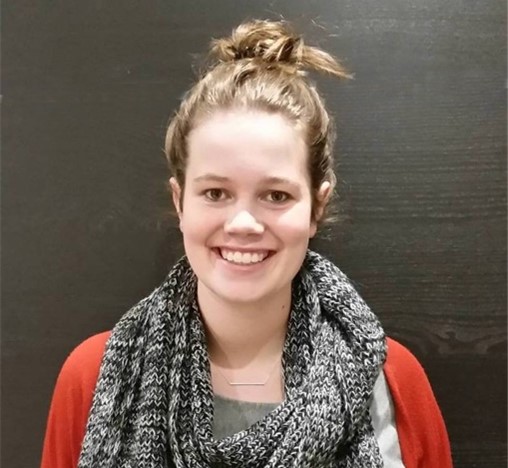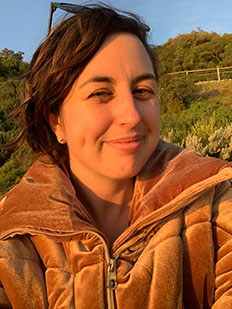'Criminal deportation’: Analysing interactions between migration control and criminal justice systems in Australia
Analysing interactions within the criminal deportation system Background:
Successive reforms to s501 of the Migration Act 1958 (Cth) have enabled the expansion of grounds to cancel visas and deport noncitizens. These reforms, particularly those introduced in 2014, have impacted the criminal justice system and the agencies that work within it.
Little is known about how criminal justice processes and criminal justice practitioners such as police, corrections, lawyers, and judges have been affected by this changing focus. This project will provide a detailed analysis and assessment of the operation of the criminal justice and migration systems in response to offending and alleged offending by non-citizens. The project's focus on the pathways leading to criminal deportation will offer insights for Australian policy-makers regarding how key systems and institutions are influenced by changing enforcement priorities, and what interactions are occurring between criminal justice and migration control agencies. Our project aims to capture practice and benefit communities by enhancing understanding about this approach to community safety.
Our project team consists of senior academics with legal and social science backgrounds who have strong track records in empirical research with a range of law enforcement and legal agencies. We seek to understand and analyse Australia’s unique approach to the merging (or not) of crime and migration laws, procedures and policies.
Research Design:
The study will investigate the flow of information and resources across various ‘crimmigration nodes’ where the migration and criminal justice systems come into contact in ways which may contribute to criminal deportation.
At each node in the criminal deportation sequence we ask the following research questions:
- Who brings the prosecution of a non-citizen or the potential criminal deportation of a criminal suspect, defendant or convicted person to the notice of the relevant partner?
- When does this occur?
- How does this happen? Is it systematic (e.g. governed by an MOU), or ad hoc? How is this information flow facilitated?
- What are the implications for migration and criminal justice agencies and procedures, and the potential deportees?
The research design conceptualises certain migration and criminal justice functions as parts of an assemblage, in order to examine flows and interactions between nodes in the criminal deportation system.
Data collection will proceed through a two stage process. The first stage involves a systemic analysis of legal, statistical, parliamentary and policy documents, including submissions and final reports from Public Inquiries, material obtained via FOI requests, and case summaries for appeals against visa cancellation made to the Administrative Appeals Tribunal. The second phase comprises key informant interviews in each of the immigration and criminal justice agencies participating in the ‘criminal deportation’ process, selected in order to cover the key institutional functions that are involved or affected. Data will be collected in Sydney, Melbourne and Canberra in relation to state level functions such as police prosecutions, public prosecutors, migration control and appeals; or national level functions such as the administration of visa cancellation.
We have obtained ethics clearance through the Human Research Ethics Committees of the University of Canberra, Australian National University and Flinders University for members of the research team to conduct interviews with key personnel who can advise on these matters, subject to strict requirements of anonymity. We hope to cover functions such as:
- the identification of potential s501 deportees, including through liaison with other agencies ;
- the visa cancellation process itself and conduct of appeals;
- data sharing arrangements and associated legal agreements;
- transfers between prison and immigration detention; and
- any other functions that relate to the overall aim of understanding the contributions made by criminal justice agencies in the process of s501 deportation.
Benefits:
The research will address current gaps in police, legal and other stakeholder knowledge around the intersection of criminal and migration law and how crimmigration is shaping criminal justice institutions and the various professions that work within them.
Increased understanding of the role of various agencies in these systemic practices will provide a greater awareness amongst criminal justice agencies, lawyers, policy-makers and advocates about system-wide functions.
Dissemination of the findings would be through usual channels such as: Academic journal articles; Research monographs; Conference presentations; Opinion Pieces; Brief summaries for participating organisations as requested; Posts on project websites.
The project is funded by an Australian Research Council Discovery Project grant DP210100931.

Leanne Weber is a Research Professor of Criminology in the Canberra Law School with a multi-disciplinary background in the social sciences. She researches policing and border control using criminological and human rights frameworks. Leanne holds an MA in the theory and practice of human rights from the University of Essex, and an MPhil and PhD in criminology from the University of Cambridge.
Leanne’s main contribution to the project will focus on the role of police in enabling criminal deportations. She will also assume primary responsibility for overall project management.
https://researchprofiles.canberra.edu.au/en/persons/leanne-weber
Professor Marinella Marmo is the Director of Teaching Program of Flinders Criminology. She holds a PhD in Applied Social Science (University of Lancaster, UK) and an LLB Hons (Università di Salerno, Italy). She is a multiple award-winning tertiary education academic, and she has published extensively in the area of critical criminology and human rights. Marinella’s contribution to the project as CI will be on court cases and interviews with judges. She also looks at the intersectionality of gender and health as potential determinant factors in such decision-making processes.
https://www.flinders.edu.au/people/marinella.marmo

Professor Alison Gerard is Head of the Canberra Law School. Alison's research focuses on social justice and has been published in leading international and Australian journals. Her sixth book, which focuses on the criminalisation of young people in Out-of-Home Care, will be published by Routledge in 2022.
Alison’s main contribution as CI on this Project will be the NSW case studies and interviews with Magistrates, Lawyers and police (including Police prosecutors).
https://researchprofiles.canberra.edu.au/en/persons/alison-gerard

Dr Faith Gordon is an Associate Professor in Law and Deputy Associate Dean of Research at the ANU College of Law, The Australian National University. Faith is the Director of the Interdisciplinary International Youth Justice Network which she established in 2016 and a co-founder and co-moderator of the Australian and New Zealand Society of Criminology's Thematic Group on children, young people and the criminal justice system. She is also an Associate Research Fellow at the Information Law & Policy Centre, Institute of Advanced Legal Studies, London and Justice and Technoscience Lab, School of Regulation and Global Governance. Faith has international expertise and research experience in youth justice; media representations; children’s rights; criminal law; digital technologies; media regulation. Faith is a CI on the DP and will be leading on the children and young people-related strand of the fieldwork.
https://law.anu.edu.au/people/faith-gordon

Mary Bosworth is the Director of the Centre for Criminology and Director of Border Criminologies, an interdisciplinary research group focusing on the intersections between criminal justice and border control. In addition to being Professor of Criminology, she is a Fellow of St Cross College at the University of Oxford and, concurrently, Professor of Criminology at Monash University. Prof. Bosworth conducts research into the ways in which prisons, immigration detention centres and deportation uphold notions of race, gender and citizenship and how those who are subject to these practices or work in these fields negotiate their daily lives. Her research is international and comparative and has included work conducted in Britain, France, Greece, the United States and Australia.
Mary will be overseeing the data collection relating to the role of detention centres and prisons.
https://www.law.ox.ac.uk/people/mary-bosworth

Rebecca Powell is the Project Manager. She is currently completing a PhD part-time with Monash Criminology that investigates the deportation of convicted New Zealanders from Australia under Section 501 of the Migration Action 1958 (Cth) through a crimmigration framework. She has over 15 years of research experience on border crossings, migration and inclusion with expertise on s501 visa cancellation and deportation legislation and policy, the AAT and impacts of s501 visa cancellation and deportation on convicted non-citizens.

Meg Randolph (She/Her) is a current Doctoral Candidate at Monash University. Her research is within the field of Border Criminology as she explores the development of offshore detention policies within Australia and the Global North. Meg’s contribution to this research is in the capacity of a Research Assistant supporting the CIs throughout this project.

Elodiea Wilson is a Doctoral candidate in the field of border studies at the University of Melbourne. Their research examines the cultural formulation of internal borders, fusing critical criminology with political anthropology. Elodiea has variously taught and conducted research on social justice and discrimination since 2019. Elodiea’s primary contribution to this project is in the capacity of research assistant.
Journal Articles and Book Chapters
Gerard, A. (2025). Care experience and deportation: Exploring interactions between child protection, criminal justice and migration control. Griffith Law Review, 1–19. https://doi.org/10.1080/10383441.2024.2447217
Gerard, A., & Gainsford, A. (2025). Dispossession cycles and resistance: Historical continuums in the deportation of First Nations peoples. Sydney Law Review, 46(3), 1-21. https://doi.org/10.30722/slr.20596
Marmo, M. (2025). Non-citizen women and visa cancellation: The role of gender in Australia’s current deportation regime under s 501. Griffith Law Review. Advance online publication. https://doi.org/10.1080/10383441.2025.2450589
Marmo, M and Guo, S. (2025). Social-legal frameworks to understand deportation of non-citizens: international laws versus national laws and policies. Griffith Law Review. Online first. https://doi.org/10.1080/10383441.2025.2590831
Weber, L., & Gerard, A. (2024). Robodeport or surveillance fantasy? How automated is automatic visa cancellation in Australia?. Frontiers in Sociology, 9, 1-16. https://doi.org/10.3389/fsoc.2024.1336160
Weber, L., Gerard, A. & Powell, R (2025) Indefinite detention as enemy crimmigration, (Under Review).
Conference Presentations
Gerard, A., & Weber, L. (2023) Automation within Australia’s criminal deportation system; questioning the extent of algorithms and visa cancellation, Algorithmic Justice Symposium, University of Newcastle, Australia
Gerard, A. (2024) Performing the Criminal Justice System: Visa Cancellation and Cycles of Injustice in Australia, British Society of Criminology, University of Glasgow, Scotland UK.
Weber, L, Gerard, A and Powell, R, ‘Protecting the community from the (non-citizen) enemy within: administrative detention and deportation as ‘enemy crimmigration’’, Carcerality & Resistance: Investigating Immigration Detention as a Failed Project, Edinburgh University, 22-24 May, 2024
Weber, L ‘Researching ‘criminal deportation’ in Australia: Piecing together a ‘crimmigration assemblage’, CINETS Conference, Portland, Oregon, 1-2 Mar, 2024
Weber, L, Gerard, A and Powell, R ‘When deportation fails: Understanding indefinite detention in Australia as ‘enemy crimmigration’’, A Critical Lens on Mass Deportation of Non-Citizens, Flinders University, Adelaide 8-9 Feb, 2024
Weber, L., Gerard, A., & Powell, R. (2024) When deportation fails: understanding indefinite detention in Australia as ‘enemy crimmigration, Australian and New Zealand Society of Criminology Conference, Canterbury University, Christchurch Aotearoa New Zealand.
Parliamentary Submissions
Gerard, A., & Weber, L. (2024) Submission: Inquiry into the Migration Amendment (Strengthening the Character Test) Bill 2021
Marmo, M., & Bandiera, R. (2024) Submission: customs amendment (preventing child labour) bill 2023
Marmo, M., Gerard, A., & Weber, L. (2024) Submission: Inquiry into the Migration Amendment (Removal and Other Measures) Bill 2024
Media Releases
Weber, L., Gerard, A., & Powell, R. (2023, Dec 8). Indefinite Detention in Australia as ‘Enemy Crimmigration’. University of Oxford. https://blogs.law.ox.ac.uk/border-criminologies-blog/blog-post/2023/12/indefinite-detention-australia-enemy-crimmigration


